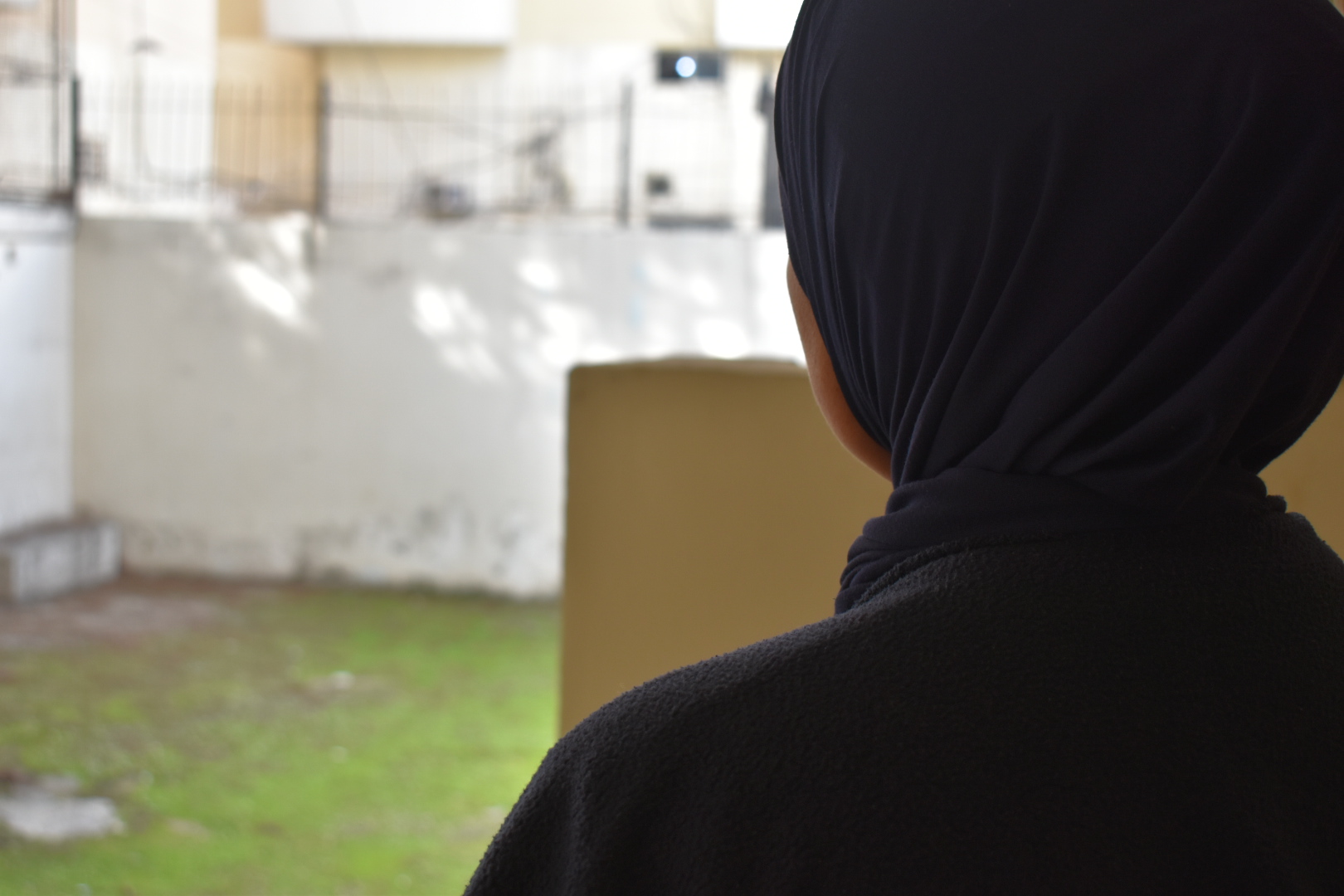From Where I Stand: “Solidarity of women within communities is the quest needed to achieve equitable rights”
Date:
According to a recent UN Women study[1], at least one in ten Lebanese, migrant and Syrian households report that female household members avoid certain areas because they were unsafe. Tala, 46, from Shalfeh, Tripoli, Lebanon, is a survivor of gender-based violence and has experienced feeling unsafe in both the public and private spheres. However, through self-defense at Markazouna Center, she is turning her fear into strength, which has allowed her to become a pillar and advocate for ending violence against women and girls in her community.
The self-defense classes are part of a broader package of services provided by UN Women and the Lebanese Women Democratic Gathering (RDFL) under the joint project entitled "Multi-Sectoral Response to the Humanitarian Crisis in the North of Lebanon through the Human Security Approach”, led by UN-Habitat, UNICEF and UN Women, and funded by United Nations Trust Fund for Human Security (UNTFHS), in partnership with Al Fayhaa, René Mouawad Foundation, RDFL, and the Municipality of Tripoli. The project aims to improve the resilience and security of communities in the vicinity of Shalfeh, Tripoli, by addressing basic needs and enhancing the delivery of protection services.
The Markazouna Community Centre has undergone a rehabilitation process, enabling it to continue its important work of delivering essential services to women and children in a safe and inclusive environment. The centre offers a range of activities, including awareness-raising on issues related to sexual and gender-based violence, self-defense and positive parenting classes, as well as carpentry workshops and other programs. These activities contribute to the overall well-being of the local community and foster a culture of equality and respect.

“My parents never taught me to defend myself from harm and violence. I believe that in some instances it is cultural, although I also think that when you live in poverty, women’s rights are deprioritized to make space for food needs, or maybe it is just a lack of awareness of the danger women face in society and at home.
In 1997, I married my husband, and we have twin daughters and a son together. For a long time, he was physically and emotionally abusive to me. Despite the abuse, I tried to hide it from my children because I do not want to traumatize them. But they see the scars, and they ask questions that are not always easy to answer.
Participating in self-defense and empowerment sessions was a turning point for me. I turned my fear into strength; I was always afraid of walking at night, of my husband, of society. We [women] were taught to hide, to cover ourselves, and never fight back. I no longer believe this; I feel strong enough to move mountains, mentally and physically.
As for the empowerment sessions, I was shocked by how little I know about my rights as a woman, and how the patriarchy persists. I learned about the legal procedures I can go through to claim my rights, my sexual and reproductive health, and how to speak my mind with no shame or stigma.
A lot of women in my community live in similar cases. We tell each other about our stories with faint whispers because we fear voicing them out loud. I no longer believe that we are the weaker link. I do not believe in igniting conflict, but I strongly believe in defending myself against harm. After taking self-defense classes, I have been able to resolve conflicts I have at home with my husband. I am now more comfortable in expressing myself and what I want, all while negotiating to resolve disagreements and reduce escalation between my husband or other people from my community.
I have become an advocate to raise awareness of violence against women and girls, for my daughters and for the women in my community. I have lived my whole life here, so I know the stories of the women who have faced violence and are too afraid to speak up. I am talking to my neighbors about RDFL services and how they changed my life, and some of them are seeking the same services. We created a safety net, a chain of advocacy, and unheard voices that echo loud enough for those hiding in silence.
Solidarity of women within communities is a quest we must all undertake to achieve equitable rights. Women within communities need to be mobilized to make societal change. We know the stories and the pain usually heavily covered once the woman steps out of her door; we are living examples of how we can change our lives by seeking help.”
Tala is one of 190 women who received self-defense classes and one of 942 women and girls who participated in awareness-raising sessions related to violence against women, sexual and reproductive health and rights, early marriage, and legal rights at Markazouna Community Center. The "Multi-Sectoral Response to the Humanitarian Crisis in the North of Lebanon through the Human Security Approach" project, is funded by the United Nations Trust Fund for Human Security (UNTFHS) and implemented by UN-Habitat, UNICEF, and UN Women, in partnership with Al Fayhaa, René Mouawad Foundation, RDFL and the Municipality of Tripoli.
The project aims to improve the security of communities living in the vicinity of Shalfeh, Tripoli, through enhancing at the community level the delivery of protection services for children and women, learning and psycho-social activities for children and caregivers in addition to livelihood skills training and opportunities for women and youth to strengthen employability and empowerment.
[1] Gender, Age and Disability Data in Lebanon's Crisis, 2023. https://lebanon.unwomen.org/sites/default/files/2023-06/Gender%2CAge%20and%20Disability%20Data%20in%20Lebanon%27s%20Crisis_REPORT.pdf